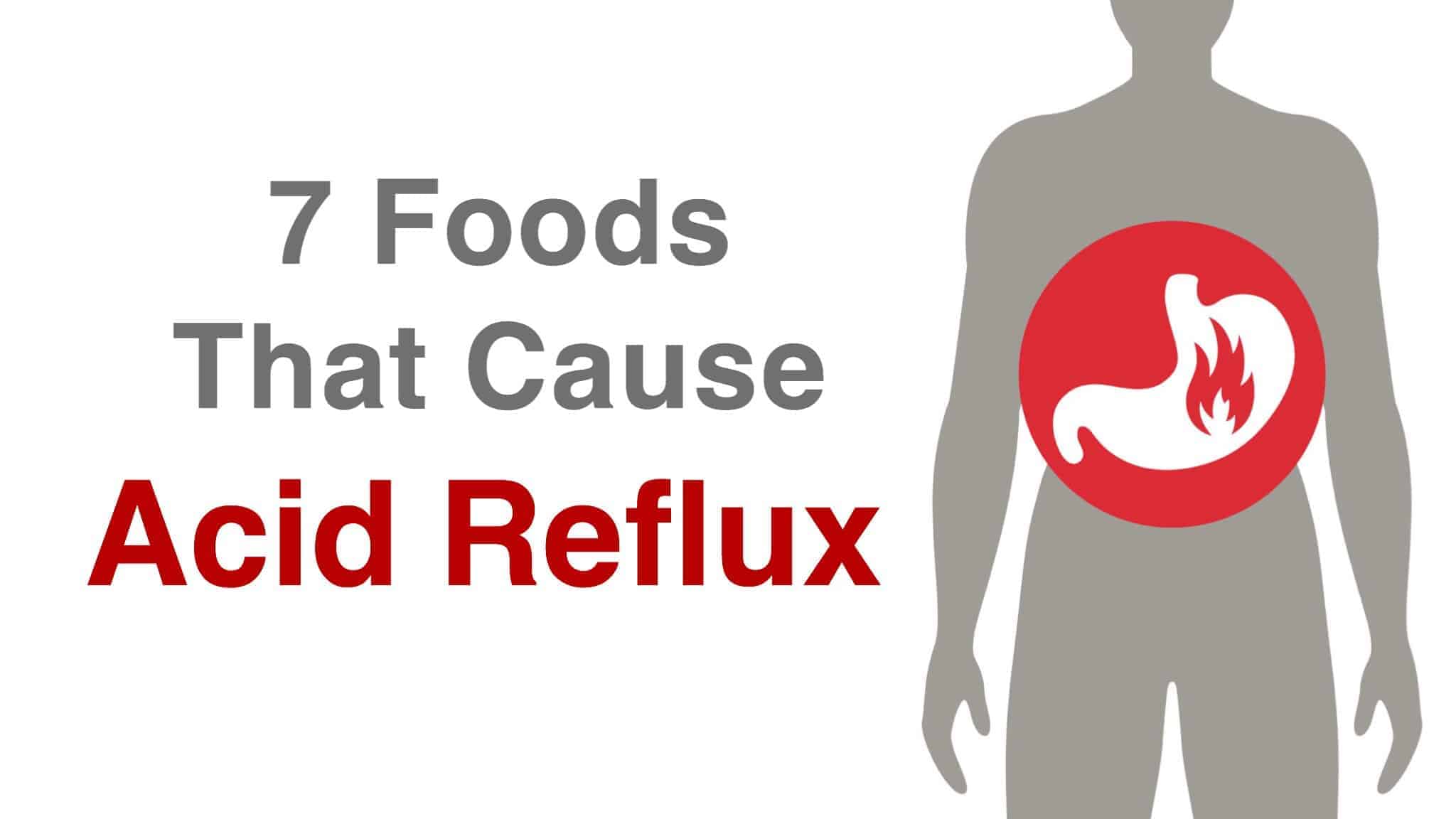Many people struggle with the agony of acid reflux. The regurgitation of sour food and burning sensation travels from your chest, through the throat, and into your mouth. IBS treatments are often sought by those experiencing similar digestive discomfort, helping to manage symptoms like bloating, cramping, and irregular bowel movements.
Like most people, you’ve probably asked yourself why this uncomfortable feeling occurs.
First, we will review the science behind acid reflux. At the inlet of your stomach is a ring of muscle, the lower esophageal sphincter, or LES. Most of the time, when we eat, this valve closes as soon as food moves through it. When the LES doesn’t close completely or if it opens too often, the acid produced by your stomach can move upwards to the esophagus. This “trespassing” of acid is what causes heartburn.
The common risk factors for acid reflux disease – a chronic condition called gastroesophageal reflux disease (GERD), are:
- Consuming large meals
- Being overweight or obese
- Certain drinks, such as alcohol, coffee, tea, or carbonated drinks
- Smoking
- OTC and prescription medications, including aspirin, ibuprofen, blood pressure medications, or muscle relaxers
- Eating certain foods
It is this last risk factor that we focus on in this article.
20 Foods to Avoid if You Experience Acid Reflux Regularly
Here are seven foods (and drinks) that cause acid reflux.

1 – Chocolate and acid reflux
Don’t kill the messenger, chocolate lovers: this delicious treat may cause more reflux than any other food. Here’s why:
- Common ingredients in chocolate, including stimulants, caffeine, and theobromine, may induce reflex.
- It is high in fat.
- Chocolate contains cocoa, a bean known to produce a reflux response.
Dark chocolate doesn’t produce the same amount of reflux episodes, but the difference is marginal.
2 – Carbonated Drinks
Yep, you knew this one was coming. Carbonated beverages – including our beloved Coke and Pepsi – are among the leading causes of acid reflux.
Here’s why carbonated beverages are harmful to acid reflux:
- Carbonated bubbles (culprits of that “burp” reflex) expand inside of the stomach, which can stimulate a reflux response.
- Almost all sodas are acidic, and acidic ingredients contribute to reflux.
The worst offenders? Diet Pepsi, Coca-Cola, and Tab.
3 – Alcohol
Booze may not be too acidic, but nearly every form – beer, liquor, and wine – can bring about acid reflux.
Alcohol can produce an acid reflux response by relaxing the pathway that adjoins the esophagus and stomach. Of course, this isn’t the type of “relaxing” we envision when imbibing – and it can produce some nasty reflux.
4 – High-fat Dairy
Let’s get this out of the way: all high-fat foods are among the main culprits of reflux. This little factoid includes any kind of high-fat dairy product: cheese, milk, butter, yogurt, and ice cream.
Low-fat is a better alternative but can still instigate reflux. The best advice is to consume dairy on a seldom basis.
5 – Caffeine
Medical professionals claim that up to three 8-ounce cups of coffee is fine for health. Not bad, right? But if you’re a fiend for the java – you are sending reflux an RSVP.
Chamomile tea is a healthier option than a cup or two of green tea per day.
Or you can do what most of us coffee lovers will probably do and roll the dice.
6 – Fried Foods
Fried foods are (gasp!) high in fat! French fries, fried chicken, and fried fish – basically anything that is both fried and delicious – are among the common culprits of reflux.
The high-fat content in fried foods makes them among the top causes of heartburn; the chest pain that results from acid reflux.
7 – Meats
Like fried foods and dairy products, the high-fat content in meats makes them an instigator of acid reflux. Meats such as beef, lamb, and pork also take longer to pass through the stomach during digestion – and increase the risk of a reflux response.
The better alternative is to choose lean cuts of meat – chicken, turkey, tenderloin beef and pork, extra-lean ground beef, and Canadian bacon, for example – and limit meat as an entrée to once per week.
8 – Chili powder, cayenne, black and white pepper
Spices make your food taste great, but too much of something good can come back to haunt you as acid reflux. These spices have a reputation for causing uncomfortable heartburn. This is because they raise the acid levels in your stomach. Try reducing how much you put in your foods when you cook if you like spices. Other seasonings that can cause acid reflux include:
- Crushed red pepper
- Tabasco sauce
- Curry spices
- Cinnamon
- Hot paprika
- Ginger
- Cloves
9 – Pizza creates a perfect acid reflux storm
Pizza is the public enemy number one when it comes to acid reflux. The gooey cheese, garlicky tomato sauce, and spicy pepperoni all add to a lot of heartburn. Pizza is also high in fat, a natural trigger for GERD (gastroesophageal reflux disease). If you suffer from acid reflux, pizza is one food you need to skip.
10 – Fatty foods that can cause acid reflux
Fatty foods naturally slow you down. Your body digests them slower than other food, causing them to sit in your stomach longer. Because they stay in your stomach so long, your body makes more acid. Fatty foods also cause your esophageal sphincter to open, which causes acid reflux. Rich foods that cause heartburn include:
- Processed baked goods
- Bacon
- French fries
- Saturated and trans fats
- Fatty sauces or gravies
- Creamy salad dressings
- Potato chips
- Buttered popcorn
11 – Acid reflux and peppermint
Peppermint can be soothing to your tummy, but it can have the opposite effect on individuals who suffer from acid reflux. Peppermint relaxes muscles in your gut that affect digestion. It also relaxes the sphincter muscle, which separates your stomach from your esophagus. All of this combined triggers painful acid reflux.
Even sipping on peppermint tea or chewing peppermint gum may set off a bout of heartburn.
12 – Garlic
Garlic, especially when it’s raw, causes heartburn even in people who don’t usually suffer from acid reflux. This pungent vegetable has many attractive benefits, but garlic is high on the list of acid producers. You may love garlic, but it won’t love you back. It’s best to skip this flavorful vegetable to avoid the pain of acid reflux.
13 – Onions
Onions and garlic are members of the Allium family. They’re related to shallots and leeks. Raw onions are acid producers that cause heartburn for many people. Even dried onions stir up this painful condition. Onions are probably one of the best vegetables to add extra flavor to your cooking, but if you suffer from heartburn, it’s best to skip these pungent veggies.
14 – Tomatoes
Juicy and sweet tomatoes are super high in acid. Eating tomatoes in any form can lead to heartburn. Tomatoey foods like ketchup, salsa, spaghetti sauce, or even a sliced raw tomato will give you acid reflux. Replace the tomatoes on your pasta with other toppings such as fresh herbs and parmesan cheese.
15 – Pineapple
It may be sweet and juicy, but pineapple isn’t for those with a sensitive stomach. It’s highly acidic, so it’s high on the food list to avoid if you suffer from acid reflux. If you must eat pineapple, stick with a small amount. Some people suggest eating small amounts of dried pineapple because it’s less acidic than fresh.
16 – Oranges or grapefruits
Most citrus fruits are high in acid. If you love citrus fruits, you can avoid experiencing acid reflux by eating a small amount of this fruit in the morning. Avoid eating near bedtime. When you eat food close to your bedtime, you’ll get heartburn. As you lay down, gravity works against the food traveling through your digestive tract, forcing bile and acids into your esophagus. This position causes acid reflux. You can skip the citrus fruits and eat other fruits that don’t cause acid reflux, including:
- Apples
- Bananas
- Melon
- Berries
17 – Salt causes acid reflux
Salt is a prime culprit for acid reflux. It’s not fully understood how salt triggers acid reflux symptoms, but individuals with a diet higher in salt usually end up with acid reflux. Be sure to read your food labels to check for the sodium amounts each food contains. Steer clear of overly-processed foods. Choose fresh foods. Also, find other ways to give flavor to your food, such as herbs or broths.
18 – Butter
Fatty foods like butter trigger heartburn. Fat makes food taste good, but it’s hard on your gut. Try finding alternative healthier fats in your cooking, such as olive oil or grapeseed oil. Steam, grill, or broil your foods instead of frying or roasting them in fat. Add herbs to your food for extra flavor.
19 – Acid reflux and mashed potatoes
Mashed potatoes seem harmless enough, but this food is a well-known trigger for painful acid reflux. The potatoes aren’t to blame, but the butter and dairy products you add to create the creamy mashed potatoes are the problem. If you love mashed potatoes, you can make a lower-fat version with skim milk and imitation butter to avoid acid reflux.
20 – Candy
Candy is sweet, but if you suffer from acid reflux, its sweet taste can quickly lead to painful heartburn. Sugar is the culprit that leads to heartburn. Plus, many candies contain Vitamin C for flavoring. This vitamin triggers painful heartburn. Skip the candy. If you have a sweet tooth, try eating blueberries or raspberries. They will satisfy your desire for sweets without giving you painful heartburn.
Final Thoughts On Avoiding The Foods That Cause Acid Reflux
Acid reflux is a painful reminder your body isn’t happy with something you ate. You get it from spicy foods, fatty foods, sweet foods high in acid like tomatoes, and even some fresh fruits like oranges and grapefruits. The bile in your esophagus and the painful burning sensation in your chest often flare up at night. Blame it on gravity because your food can’t travel through your digestive tract when you’re lying down. Hopefully, if you suffer from acid reflux, this list of food to avoid will help ease the pain you experience. Your good health is worth giving up a few foods.






















